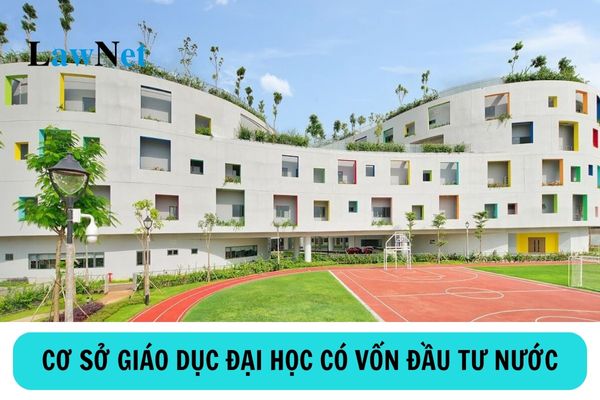What are the duties and powers of foreign-invested higher education institutions in Vietnam?
What are the conditions for establishing a foreign-invested higher education institution in Vietnam?
According to Article 22 of the Law on Higher Education 2012 (amended by Clause 16, Article 1 of the Law on Amending the Law on Higher Education 2018 and partially annulled by Clause 2, Article 2 of the Law on Amending the Law on Higher Education 2018), the conditions for establishing a foreign-invested higher education institution in Vietnam are as follows:
- There must be a project establishment that is consistent with the approved master plan for the higher education institutional network;
- There must be written consent from the provincial People's Committee where the institution's headquarters will be located regarding the establishment of the higher education institution and confirmation of land use rights;
- There must be confirmation from a competent authority regarding the financial capacity to invest in the construction of the higher education institution;
- The foreign-invested higher education institution must comply with other conditions as stipulated in the Investment Law 2020.
What are the duties and powers of foreign-invested higher education institutions in Vietnam?
According to Article 31 of the Law on Higher Education 2012, the duties and powers of foreign-invested higher education institutions in Vietnam include:
- Developing and implementing objectives, programs, teaching content, scientific research; building a team of lecturers, infrastructure, equipment, textbooks, and materials for teaching and learning; ensuring and performing quality accreditation of higher education; organizing training activities, issuing diplomas and certificates as regulated by law.
- Organizing and operating according to the decision approving the establishment and training activities.
- Publicizing commitments to training quality, resources, and financial status.
- Being subject to the state management of education by the Ministry of Education and Training.
- Regularly reporting on operational conditions and providing explanations upon request by the Ministry of Education and Training, ministries and central authorities, competent agencies, and the provincial People's Committee where the foreign-invested higher education institution is headquartered and operates.
- Ensuring the legal rights and interests of students, lecturers, and other employees, including cases of termination or forced early termination of operations.
- Respecting the laws, customs, and traditions of Vietnam.
- Being protected by the state regarding legal rights and interests as regulated by Vietnamese law and international treaties of which the Socialist Republic of Vietnam is a member.
- Performing other duties and exercising other powers as stipulated by the law.

What are the duties and powers of foreign-invested higher education institutions in Vietnam? (Image from the Internet)
Are foreign-invested higher education institutions in Vietnam allowed to autonomously develop their training programs?
According to Article 36 of the Law on Higher Education 2012 (amended by Clause 21, Article 1 of the Law on Amending the Law on Higher Education 2018 and partially replaced by Clause 1, Article 2 of the Law on Amending the Law on Higher Education 2018), regulations on higher education programs and textbooks are as follows:
Higher Education Programs and Textbooks
1. Training programs:
a) The training program includes objectives, knowledge volume, structure, content, methods, and forms of evaluation for subjects, disciplines, levels of training, and outcome standards in accordance with the Vietnamese National Qualifications Framework;
b) The training program is constructed in credit units, including research-oriented, application-oriented, and career-oriented programs; ensuring requirements for articulation between levels and disciplines of training; ensuring regulations on training program standards;
c) Higher education institutions may use training programs of foreign higher education institutions approved by competent authorities of that country for training and degree issuance or with a valid quality accreditation certificate issued by a legal accreditation organization; ensuring compliance with intellectual property laws;
d) Higher education institutions are autonomous and responsible for explaining the construction, appraisal, and enactment of training programs for college, university, master's, and doctoral levels;
e) Foreign-invested higher education institutions are autonomous and responsible for explaining the construction and implementation of training programs that have been accredited by a Vietnamese quality accreditation organization, ensuring no harm to national defense, national security, community interests, and not distorting history, negatively affecting culture, ethics, customs, and solidarity among Vietnamese ethnic groups, peace, and world security; not containing religious propaganda;
f) Training programs in the form of continuous education have content similar to formal education programs.
...
Thus, foreign-invested higher education institutions are allowed to autonomously develop their training programs.
Foreign-invested higher education institutions are responsible for explaining the construction and implementation of training programs that have been accredited by a Vietnamese quality accreditation organization.

